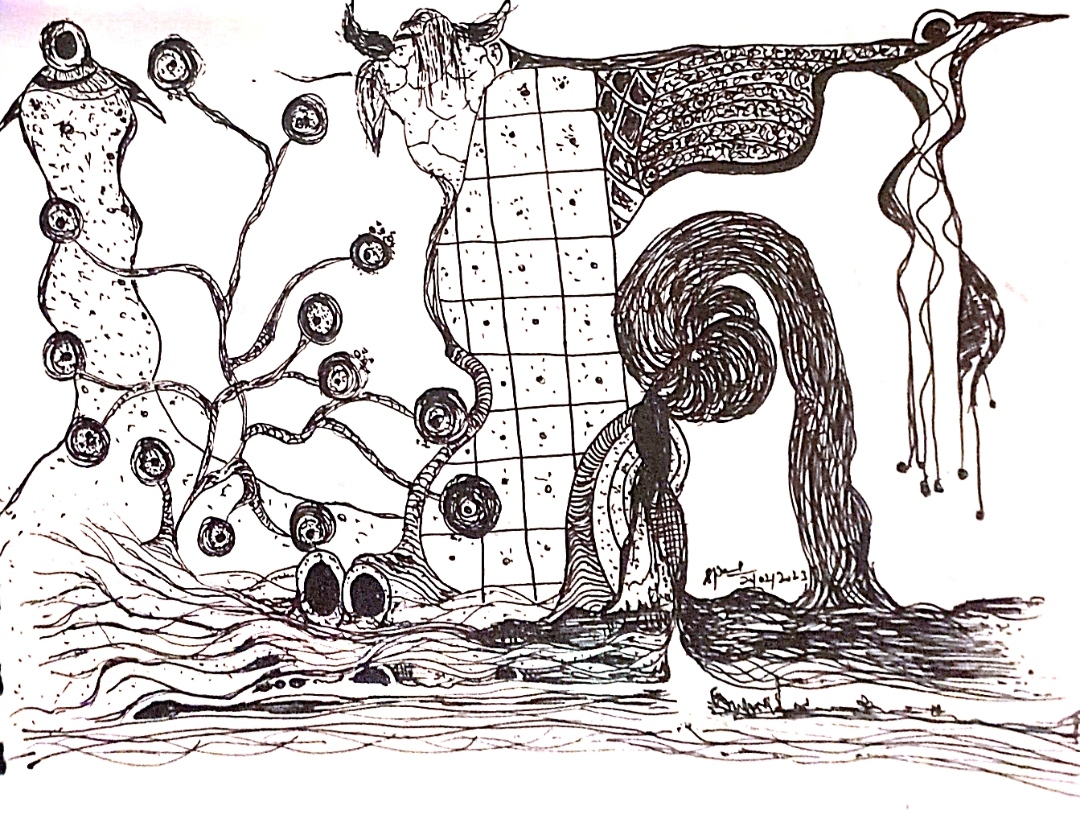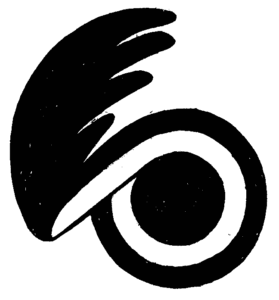
Our Master
Byron —

George Gordon Byron was born on 22 January 1788. He inherited the barony in 1798. He went to school to Trinity College, Cambridge, later gaining a reputation in London for his startling good looks and extravagant behaviour. His first collection of poems, Hours of Idleness (1807), was not well received, but with the publication of the first two cantos of `Childe Harold’s Pilgrimage’ (1812) he became famous over-night. In 1815 he married the heiress Arabella Milbanke, but they were separated after a year. Byron shocked society by the rumored relationship with his half-sister, Augusta, and in1816 he left England. He eventually settled in Italy, where he lived for some time with Teresa, Countess Guiccioli. He supported Italian revolutionary movements and in 1823 he left for Greece to fight in its struggle for independence, but he contracted a fever and died at Missolonghi in 1824. Byron’s contemporary  popularity was largely based on his romantic works, but his satires such as `Beppo’ (1818), `The Vision of Judgement’ (1822) and `Don Juan’ (1819Ä24) represent his most sophisticated and accomplished writing. He had a great influence on the Romantic movement, and the Byronic hero was a prototype frequently imitated in European literature
popularity was largely based on his romantic works, but his satires such as `Beppo’ (1818), `The Vision of Judgement’ (1822) and `Don Juan’ (1819Ä24) represent his most sophisticated and accomplished writing. He had a great influence on the Romantic movement, and the Byronic hero was a prototype frequently imitated in European literature
SHE WALKS IN BEAUTY
She walks in beauty, like the night
Of cloudless climes and starry skies;
And all that’s best of dark and bright
Meet in her aspect and her eyes:
Thus mellowed to that tender light
Which heaven to gaudy day denies.
One shade the more, one ray the less,
Had half impaired the nameless grace,
Which waves in every raven tress,
Or softly lightens o’er her face;
Where thoughts serenely sweet express,
How pure, how dear their dwelling-place.
And on that cheek, and o’er that brow,
So soft, so calm, yet eloquent,
The smiles that win, the tints that glow,
But tell of days in goodness spent,
A mind at peace with all below,
A heart whose love is innocent!
OH! SNATCHED AWAY IN
BEAUTY’S BLOOM
OH! snatched away in beauty’s bloom,
On thee shall press no ponderous tomb;
But on thy turf shall roses rear
Their leaves, the earliest of the year;
And the wild cypress wave in tender gloom:
And oft by yon blue gushing stream
Shall Sorrow lean her drooping head,
And feed deep thought with many a dream,
And lingering pause and lightly tread;
Fond wretch! as if her step disturbed the dead!
Away! we know that tears are vain,
That death nor heeds nor hears distress:
Will this unteach us to complain ?
Or make one mourner weep the less?
And thou – who tell’st me to forget,
Thy looks are wan, thine eyes are wet.
FARE THEE WELL
`Alas! they have been friends in youth;
But whispering tongues can poison truth:
And constancy lives in realms above;
And life is thorny; and youth is vain:
And to be wroth with one we love,
Dot/i work like madness in the brain;
*
But never either found another
To free the hollow heart from paining –
They stood aloof, the scars remaining,
Like cliffs, which had been rent asunder;
A dreary sea now flows between,
But neither heat, nor frost, nor thunder,
Shall wholly do away, I ween, The marks of that which once hat/i been.’
COLERIDGE’S Christabel
***
Fare thee well! and if for ever,
Still for ever, fare thee well:
Even though unforgiving, never
`Gainst thee shall my heart rebel.
Would that breast were bared before thee
`Where thy head so oft hath lain,
`While that placid sleep came o’er thee
Which thou ne’er canst know again:
Would that breast, by thee glanced over,
Every inmost thought could show!
Then thou wouldst at last discover
`Twas not well to spurn it so.
Though the world for this commend thee –
Though it smile upon the blow,
Even its praises must off end thee,
Founded on another’s woe:
Though my many faults defaced me,
Could no other arm be found,
Than the one which once embraced me,
To inflict a cureless wound?
Yet, oh yet, thyself deceive not;
Love may sink by slow decay,
But by sudden wrench, believe not
Hearts can thus be torn away:
Still thine own its life retaineth –
Still must mine, though bleeding, beat;
And the undying thought which paineth
Is – that we no more may meet.
These are words of deeper sorrow
Than the wail above the dead;
Both shall live, but every morrow
Wake us from a widowed bed.
And when thou would solace gather,
When our child’s first accents flow,
Wilt thou teach her to say `Father!’
Though his care she must forego?
When her little hands shall press thee,
When her lip to thine is pressed,
Think of him whose prayer shall bless thee,
Think of him thy love had blessed!
Should her lineaments resemble
Those thou never more may’st see,
Then thy heart will softly tremble
With a pulse yet true to me.
All my faults perchance thou knowest,
All my madness none can know;
All my hopes, where’er thou goest,
Wither, yet with thee they go.
Every feeling bath been shaken;
Pride, which not a world could bow,
Bows to thee – by thee forsaken,
Even my soul forsakes me now:
But `tis done – all words are idle –
Words from me are vainer still;
But the thoughts we cannot bridle
Force their way without the will.
Fare thee well! thus disunited,
Torn from every nearer tie,
Seared in heart, and lone, and blighted,
More than this I scarce can die.
March 17, 1816.
SO WE’LL GO NO MORE A-ROVING
So we’ll go no more a-roving
So late into the night,
Though the heart be still as loving,
And the moon be still as bright.
For the sword outwears its sheath,
And the soul wears out the breast,
And the heart must pause to breathe,
And love itself have rest.
Though the night was made for loving,
And the day returns too soon,
Yet we’ll go no more a-roving
By the light of the moon.
1817.
JOHN KEATS
Who killed John Keats?
`I,’ says the Quarterly,
So savage and Tartarly;
“Twas one of my feats.’
Who shot the arrow?
`The poet-priest Milman
(So ready to kill man),
Or Southey or Barrow.’
July, 1821.
THE VISION OF JUDGMENT
I
SAINT PETER sat by the celestial gate:
His keys were rusty, and the lock was dull,
So little trouble had been given of late;
Not that the place by any means was full,
But since the Gallic era `eighty-eight’
The devils had taken a longer, stronger pull,
And `a pull altogether’, as they say
At sea – which drew most souls another way.
II
The angels all were singing out of tune,
And hoarse with having little else to do,
Excepting to wind up the sun and moon,
Or curb a runaway young star or two,
Or wild colt of a comet, which too soon
Broke out of bounds o’er the ethereal blue,
Splitting some planet with its playful tail,
As boats are sometimes by a wanton whale.
Ill
The guardian seraphs had retired on high,
Finding their charges past all care below;
Terrestrial business filled nought in the sky
Save the recording angel’s black bureau;
Who found, indeed, the facts to multiply
With such rapidity of vice and woe,
That he had stripped off both his wings in quills,
And yet was in arrear of human ills.
IV
His business so augmented of late years,
That he was forced, against his will, no doubt,
(Just like those cherubs, earthly ministers,)
For some resource to turn himself about,
And claim the help of his celestial peers,
To aid him ere he should be quite worn out,
By the increased demand for his remarks:
Six angels and twelve saints were named his clerks.
V
This was a handsome board – at least for heaven;
And yet they had even then enough to do,
So many conquerors’ cars were daily driven,
So many kingdoms fitted up anew;
Each day, too, slew its thousands six or seven,
Till at the crowning carnage, Waterloo,
They threw their pens down in divine disgust –
The page was so besmeared with blood and dust.
VI
This by the way; `tis not mine to record
What angels shrink from: even the very devil
On this occasion his own work abhorred,
So surfeited with the infernal revel:
Though he himself had sharpened every sword,
It almost quenched his innate thirst of evil.
(Here Satan’s sole good work deserves insertion –
`Tis, that he has both generals in reversion.)
VII
Let’s skip a few short years of hollow peace,
Which peopled earth no better, hell as wont,
And heaven none – they form the tyrant’s lease,
With nothing but new names subscribed upon’t;
`Twill one day finish: meantime they increase,
`With seven heads and ten horns,’ and all in front,
Like Saint John’s foretold beast; but ours are born
Less formidable in the head than horn.
VIII
In the first year of freedom’s second dawn
Died George the Third; although no tyrant, one
Who shielded tyrants, till each sense withdrawn
Left him nor mental nor external sun:
A better farmer ne’er brushed dew from lawn,
A worse king never left a realm undone!
He died – but left his subjects still behind,
One half as mad- and `tother no less blind.
Ix
He died! – his death made no great stir on earth;
His burial made some pomp; there was profusion
Of velvet, gilding, brass, and no great dearth
Of aught but tears – save those shed by collusion
For these things may be bought at their true worth;
Of elegy there was the due infusion-
Bought also; and the torches, cloaks and banners,
Heralds, and relics of old Gothic manners,
x
Formed a sepulchral melodrame. Of all
The fools who flocked to swell or see the show,
Who cared about the corpse? The funeral
Made the attraction, and the black the woe.
There throbbed not there a thought which pierced the pall;
And when the gorgeous coffin was laid low,
It seemed the mockery of hell to fold
The rottenness of eighty years in gold.
xi
So mix his body with the dust! It might
Return to what it must far sooner, were
The natural compound left alone to fight
Its way back into earth, and lire, and air;
But the unnatural balsams merely blight
What nature made him at his birth, as bare
As the mere million’s base unmummied clay
Yet all his spices but prolong decay.
XII
He’s dead – and upper earth with him has done;
He’s buried; save the undertaker’s bill,
Or lapidary scrawl, the world is gone
For him, unless he left a German will;
But where’s the proctor who will ask his son?
In whom his qualities are reigning still,
Except that household virtue, most uncommon,
Of constancy to a bad, ugly woman.
XIII
`God save the king!’ It is a large economy
In God to save the like; but if he will
Be saving, all the better; for not one am I
Of those who think damnation better still:
I hardly know too if not quite alone am I
In this small hope of bettering future ill
By circumscribing, with some slight restriction,
The eternity of hell’s hot jurisdiction.
XIV
I know this is unpopular; I know
`Tis blasphemous; I know one may be damned
For hoping no one else may ever be so;
I know my catechism; I know we are crammed
With the best doctrines till we quite overflow;
I know that all save England’s church have shammed,
And that the other twice two hundred churches
And synagogues have made a damned bad purchase.
XV
God help us all! God help me too! I am,
God knows, as helpless as the devil can wish,
And not a whit more difficult to damn,
Than is to bring to land a late-hooked fish,
Or to the butcher to purvey the lamb;
Not that I’m fit for such a noble dish,
As one day will be that immortal fry
Of almost every body born to die.
XVI
Saint Peter sat by the celestial gate,
And nodded o’er his keys; when, lo! there came
A wondrous noise he had not heard of late –
A rushing sound of wind, and stream, and flame;
In short, a roar of things extremely great,
Which would have made aught save a saint exclaim;
But he, with first a start and then a wink,
Said, `.There’s another star gone out, I think!’
XVII
But ere he could return to his repose,
A cherub flapped his right wing o’er his eyes –
At which Saint Peter yawned, and rubbed his nose:
`Saint porter,’ said the angel, `prithee rise!’
Waving a goodly wing, which glowed, as glows
An earthly peacock’s tail, with heavenly dyes;
To which the saint replied, `Well, what’s the matter?
Is Lucifer come back with all this clatter?’

